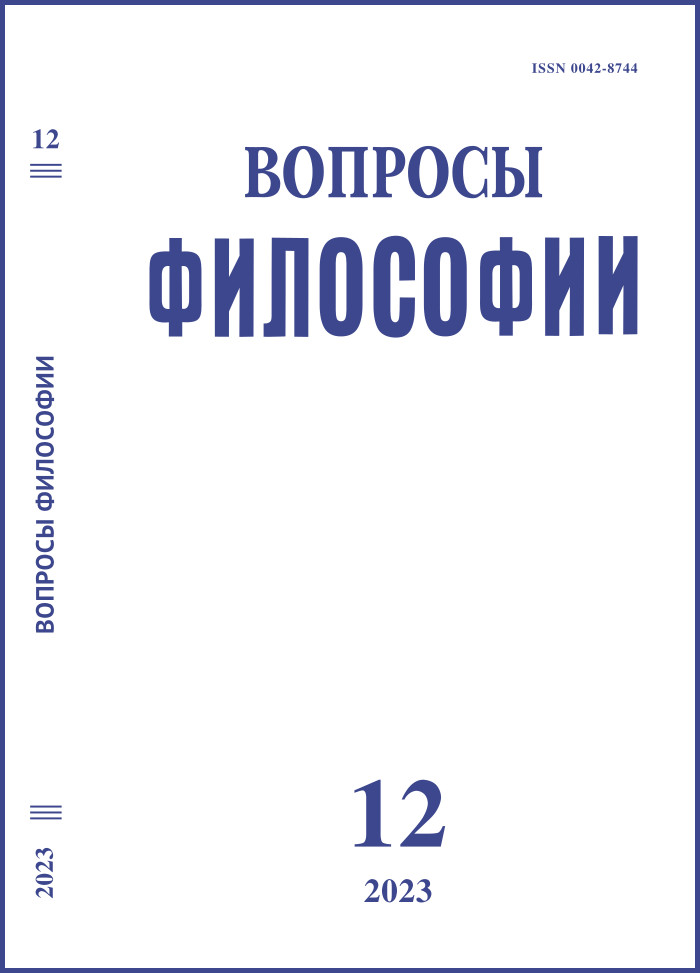Methods for Studying Classical Philosophical Texts in Indian and European Thought Traditions
DOI:
https://doi.org/10.21146/0042-8744-2023-12-93-102Keywords:
methodology, philosophical textology, philosophical theories of translation, Indian philosophy, classical philosophical text, open term, Situational Hermeneutics, European philosophy, comparative studies.Abstract
A classical philosophical text has many definitions that fix its specific features in contrast to (a) a non-classical philosophical text, and (b) a non-philosophical text. We understand by a classical philosophical text a text in which a certain worldview is reconstructed (or problems are solved), and which was created in the classical era (dating for Europe and India will be different). The most appropriate form of such a text would be the form of a treatise, which can be defined as a systematic discourse on a given topic. If we look away from historical and philosophical dating, although they are important, and look at the philosophical treatise from the point of view of language, then the linguistic parameters of this text, which will allow us to distinguish it from another, in addition to the form of reasoning (dialogue, monologue, polylogue), will include a set of open philosophical concepts set by the author and unfolded by as the reader reads. Thus, a classical philosophical text can be defined as a systematic (according to certain canons) reasoning, in which there are open, that is, rigidly or unambiguously not fixed by the author philosophical terms. The article analyzes the main techniques and methods of working with philosophical text (terminology, reconstruction, condensation of meaning, manifestation of latent information encrypted in the text, etc.). This analysis is compared with the methods of working with philosophical text proposed in India (usually in the form of commentary). Since when working with original texts, the researcher’s attitude related to his personal explanation of the diversity of cultures and possible solutions to this problem is important, it is important to demonstrate the basic theories of translation. Thus, the article contains: 1) description of the general definition and methods of working with the classical philosophical text in India and in Europe; 2) bringing to the fore (and justification) as a characteristic linguistic feature of a philosophical text, the presence in it of open terms used in a text aimed at solving ideological issues; 3) description of special methods of working with philosophical text in India, offered by the autochthonous tradition. Possible methodological collisions of Indian and European cultures are analyzed on the example of Adluri’s book.

